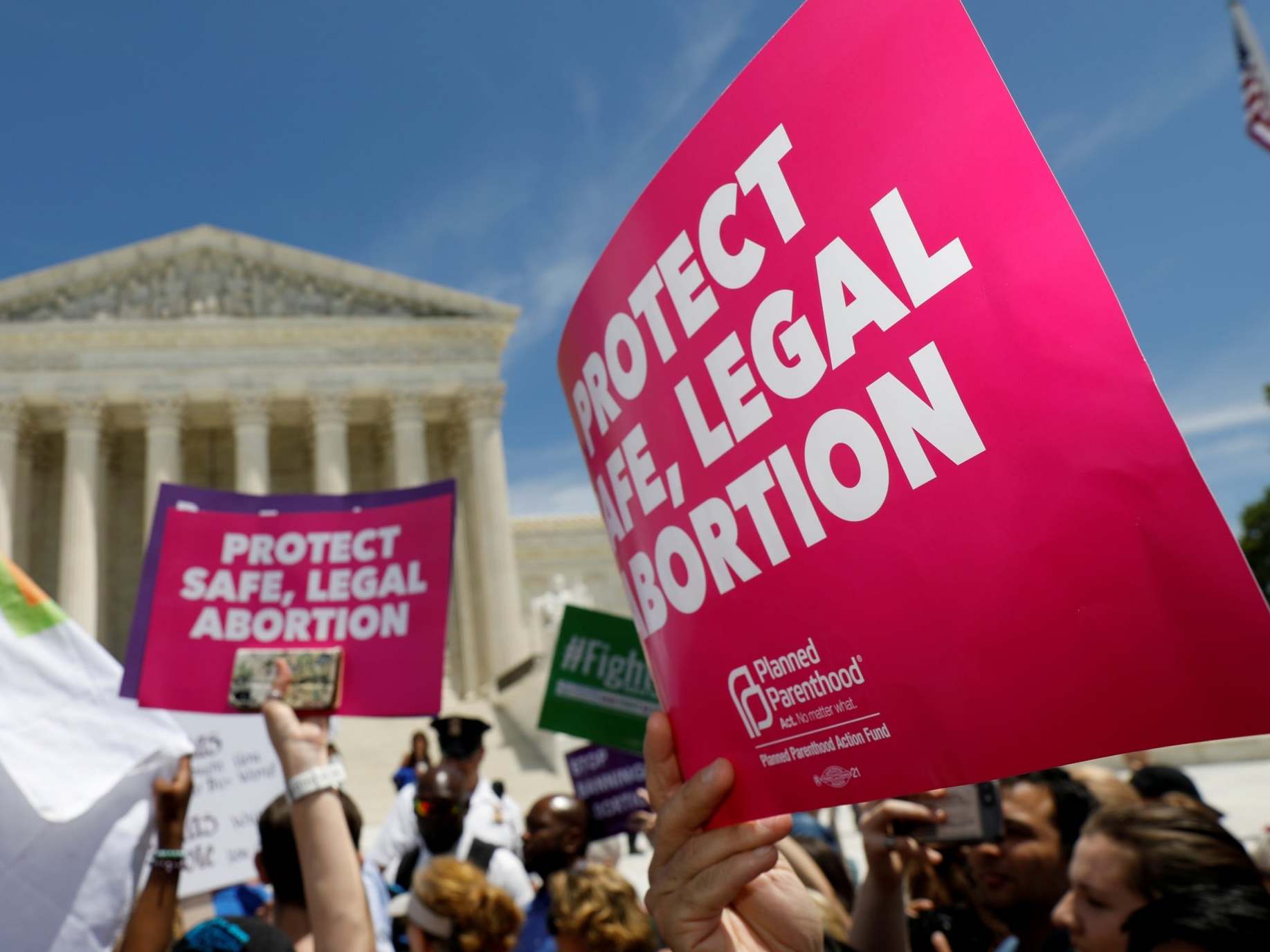Trump administration cannot block abortions for undocumented teenagers, court rules
Case brought after former Judge Brett Kavanaugh refused to let 17-year-old girl held in Texas shelter have termination

Your support helps us to tell the story
From reproductive rights to climate change to Big Tech, The Independent is on the ground when the story is developing. Whether it's investigating the financials of Elon Musk's pro-Trump PAC or producing our latest documentary, 'The A Word', which shines a light on the American women fighting for reproductive rights, we know how important it is to parse out the facts from the messaging.
At such a critical moment in US history, we need reporters on the ground. Your donation allows us to keep sending journalists to speak to both sides of the story.
The Independent is trusted by Americans across the entire political spectrum. And unlike many other quality news outlets, we choose not to lock Americans out of our reporting and analysis with paywalls. We believe quality journalism should be available to everyone, paid for by those who can afford it.
Your support makes all the difference.The Trump administration cannot block pregnant, undocumented teenagers held in government custody from getting abortions, a federal appeals court has ruled.
The court concluded that it was “rejecting the government’s position that its denial of abortion access can be squared with Supreme Court precedent”.
The American Civil Liberties Union (ACLU) initially brought the case on behalf of a 17-year-old girl from Central America held in a government-funded shelter in Texas.
In October 2017, then-Judge Brett Kavanaugh refused to let the girl have an abortion, even though she was 15 weeks pregnant and had already obtained judicial bypass pursuant to state law. The US Court of Appeals for the District of Columbia Circuit reversed Mr Kavanaugh’s decision, allowing the girl to terminate her pregnancy.
The government's Office of Refugee Resettlement in 2017 had adopted a policy of refusing to “facilitate” abortions for teens in its custody who had crossed the border illegally.
In its 81-page ruling on Friday, the court noted that under the policy, the former director of the office, E Scott Lloyd, had to review individual abortion requests and had never approved one, including when the pregnancy resulted from rape.
Even when one teen obtained private funding and transportation for the abortion, the director refused to let her leave the shelter to undergo the procedure.
“That is not a refusal to fund an abortion; it is a refusal to allow it,” the court said in an unsigned opinion joined by Judges Sri Srinivasan and Robert Wilkins.
Brigitte Amiri, the ACLU attorney who argued the case, said dozens of young women have benefited because of the injunction the court upheld Friday that protects access.
Ms Amiri's colleagues receive one to three calls each week, she said, from teens in shelters seeking information about abortion services.
“It's a tremendous relief that the government will continue to be prohibited from blocking access to critical care for unaccompanied minors,” she said.
A Justice Department spokesperson was not immediately available for comment.
In 2018, almost 50,000 unaccompanied minors were referred to the refugee resettlement office, and each year the office has several hundred pregnant minors in its custody.
The case attracted significant attention with its explosive mix of abortion and immigration policies, and because of the previous involvement of Supreme Court Justice Brett Kavanaugh while he was on the DC Circuit.
Last March, a federal judge in Washington, issued a nationwide order that prevented the government from interfering with access to abortion services.
Justice Department lawyers had asked the appeals court to reverse the order, saying the government should not have to “facilitate the termination of life through abortion".
The court rejected the government's argument that the teenagers could always voluntarily return to their home countries to terminate their pregnancies in part because the teenagers would need sign off from the US government.
“Voluntary departure, then, is not a freely available escape hatch from a government veto on abortion. It is instead a second government veto,” the court ruled on Friday.
In addition, the court noted that the teenagers were unlikely to be able to obtain abortions in their home countries because most minors in custody come from Honduras, Guatemala or El Salvador. “Abortion is criminalised in all three countries,” the court said.
The government lawyers also asked the appeals court for leeway to consider the circumstances of each individual teen in custody instead of allowing the case to move forward as an official class or group of litigants.
In his dissent, Judge Laurence H Silberman said the class certified by the court “is much too broad; it should not include pregnant minors who do not wish an abortion”.
Those challenging the policy “contend that all pregnant minors – whether or not they want an abortion – are really aligned with the class representatives because the relevant constitutional right in their view is the right to choose whether or not to have an abortion,” Mr Silberman wrote.
“I think that confuses a political slogan with a constitutional right.”
The Trump administration's policy departed from that of the Obama administration, which did not block migrants in US custody from having abortions at their own expense.
Justice Kavanaugh was on an earlier panel of appeals court judges reviewing the case when it first reached the DC Circuit. The case was repeatedly cited during his nomination battle by abortion rights advocates as evidence that Mr Kavanaugh would allow more restrictions on abortion than the justice he replaced, Anthony Kennedy.
When the case initially was on appeal before the full court in October 2017, Mr Kavanaugh's colleagues reversed his order that would have delayed a teen's access to abortion services. Judges Srinivasan and Wilkins voted with the majority to allow immediate access. Mr Kavanaugh dissented.
The Washington Post
Join our commenting forum
Join thought-provoking conversations, follow other Independent readers and see their replies
Comments